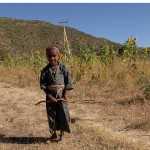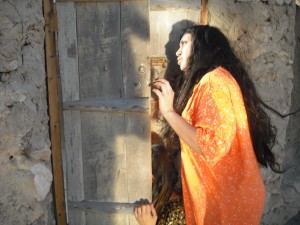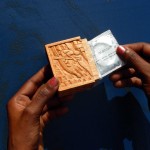This question has been puzzling me since a late-night, noisy get together with friends where we got talking (some might say gossiping) about the alleged cross-party sexual politics taking place in our government. The men, it was said, were using sex as a strategy to silence the women from the opposite camps. The [...]]]>

Queen Elizabeth I kept a reign on power by becoming "The Virgin Queen" Credit www.PDImages.com
This question has been puzzling me since a late-night, noisy get together with friends where we got talking (some might say gossiping) about the alleged cross-party sexual politics taking place in our government. The men, it was said, were using sex as a strategy to silence the women from the opposite camps. The woman targeted loses her standing once she’s been seduced as it quickly becomes general knowledge among other politicians.
“Once you see that so and so who used to be so vocal has gone quite then you know they’ve been had,” said one friend. Much like the boarding school strategy employed by male students to remove the top performing girl student’s ranking as number one in class I’m told. But, never having been to boarding school, much less a co-educational school, I am not aware.
As much as this dirty trick is an age-old male strategy to silence female opponents, women throughout history have used their sexuality, that is — whom one has sex with (or not), in what ways, why, under what circumstances, and with what outcomes — as a strategy to gain power.
I’m thinking Anne Boleyn, Cleopatra and Eva Peron. Make no mistake about it. These were no dimwitted women bumbling their way to power. Neither were they the most attractive of women. No doubt their intelligence, wit, charm, humour and deep passion to succeed all combined to give them charisma, which played an important part in their sexual allure. And their sexual power lay in this desirability, not in handing out sexual favours.
More recently, we had general head shaking disapproval from many quarters over German Chancellor Angela Merkel and Christian Democratic Union Parliamentary candidate Vera Lengsfeld’s bosomy “We have more to offer” poster, which featured in last August’s election campaign. The posters were put up by Lengsfeld, who said she wanted to give the campaign a bit of humour. Reading up on Lengsfeld I found out she has a degree in Philosophy of Religion and is a civil rights activist which was my confirmation that she really thought this poster idea through. I wonder if there would have been less head shaking if the bosoms had not been middle-aged ones.
The example of all these women got me thinking that male politicians’ strategy of using sex against women could be turned on its head after the style of Anne Boleyn. It seems that sexual unavailability will get you ahead. Anne Boleyn’s “Queen or nothing” strategy worked well with Henry VIII. She refused to be his mistress and all the while his attentions and favours towards her flourished. Eventually he married her, annulling his marriage to Catherine of Aragon. But no sooner had she become Queen than Henry VIII began to lose interest and eventually got around to beheading her.
Elizabeth I (Anne Boleyn’s daughter) perfected her mother’s strategy. She came into power at age 25 despite being declared illegitimate and stayed in power for 44 years until her death. Sometimes called ‘The Virgin Queen’, she never married. Not only did Elizabeth avoid losing her power to a husband by marrying, she also avoided the problem of succession. Personally I’m not convinced Elizabeth was really a virgin, but either way, her strategy of sexual aloofness certainly kept her in the game of politics.
I can just picture many readers are tsk tsking, thinking this type of discussion is not going to help advance the feminist cause. Some will argue that in those days women may have had to use their ‘feminine wiles’ in addition to their intellectual skills to get ahead but now we have to employ ‘fair’ tactics and play strictly by the book. The problem for me is that men’s unfair tactics — violence, money and character assassination being the primary ones — are rarely questioned. In fact, they tend to be rewarded.
Surely denying women use of their sexuality in the game of politics and power is yet another reflection of the power imbalances between women and men where women’s sexual rights are limited while men’s sexual freedom grows. In the so-called “dirty game of politics”, are we stifling women’s progress to the top by refusing them the right to use their sexuality while we applaud men’s use of the same?
]]>A. When it is shown in a pornographic magazine, film or website.
B. Never.
C. When it is emailed to government officials urging action to improve public health.
One could argue about A and B but this blog is [...]]]>

By Paula Modersohn Becker
When is a photo of a woman giving birth considered pornographic? Take your pick:
A. When it is shown in a pornographic magazine, film or website.
B. Never.
C. When it is emailed to government officials urging action to improve public health.
One could argue about A and B but this blog is about C.
Earlier this year, in Zambia, Chansa Kabwela, news editor at the feisty opposition newspaper The Post, was charged with circulating pornography with intent to corrupt public morals. What was her crime? During a nationwide strike by Zambia’s miserably paid doctors, a woman allegedly gave birth without medical assistance in a hospital car park. The baby was in a breech position and later died.
Her family sent Kabwela the photos but she found them too graphic for publication. Instead, she emailed them to the vice-president and other government officials and women’s groups, urging a negotiated end to the strike to avoid more deaths.
President Rupiyah Banda found the photos “morbid and peculiar” and Kabwela, a 29-year-old mother of two, was charged with the porn offence, which carries a five-year jail sentence. The state argued that giving birth is sacred in Zambia and the photos were disrespectful.
If giving birth is so sacred, why was the woman delivering in a car park?
Good sense prevailed and in November a judge acquitted Kabwela.
The Post has long been harassed by government for exposing corruption. This court case is one more instance, using birth, women and tradition as a cover to erode press freedom.
A very famous Christmas birth
This being the season of a famous birth, on the other side of the world, in New Zealand, a mischievous billboard about the immaculate conception has angered Catholics. 
It shows Joseph and Mary in bed. She looks blissful; he looks dejected. The kicker: “Poor Joseph. God is a hard act to follow.”
The twist is that the originator is an Anglican archdeacon who commissioned an ad agency to produce a Christmas poster. The archdeacon argues, somewhat confusedly, that the purpose was to highlight that Christmas is about love, not about Mary’s impregnation by God.
Within hours the billboard was defaced with brown paint. Well, at least this is better than rioting over caricatures of the Prophet or charging an editor with pornography.
Giving birth is charged with cultural meaning: it can be sacred, pornographic, joyful, “eculiar” or offensive. For half a million women, every year, it is deadly.
Yet these deaths do not spark the same outrage as a billboard or photographs.
My wish this Christmas is quite simple: safe delivery for women everywhere, not in a car park and not in a manger, neither holy nor unholy, whether through sex, artificial insemination or immaculate conception. Just safe.
***
Read about why maternal mortality remains so intractable here and about midwives in India.
]]>Yet CEDAW – Convention of the Elimination of All Forms of Discrimination Against Women – has likely impacted on her life and her daughters, if [...]]]>
Yet CEDAW – Convention of the Elimination of All Forms of Discrimination Against Women – has likely impacted on her life and her daughters, if she has any, in many ways, from pension and inheritance rights to the passport they hold.

Quilt made by women of Kyrgztan. (Unifem)
CEDAW, which was adopted by the United Nations General Assembly 30 years ago today, is the global Bill of Rights for Women, the first international human rights treaty devoted to gender equality.
Through its 30 articles, CEDAW has boosted women’s rights worldwide in many ways.
Some examples: new constitutional guarantees for women in Thailand; land- owning rights for women in Kyrgyzstan and Tajikistan; changes to the law of evidence to benefit women in the Solomon Islands; and reproductive health rights in Colombia.
India outlawed sexual harassment in the workplace, Mexico tightened its domestic violence laws and Morocco passed a new family code in 2004. Read more here.
Today CEDAW turns 30 and is the world’s most widely ratified treaty, with 186 signatory countries.
But there is no time to rest on laurels.
Attempts by conservative forces – from Washington to Jerusalem, from Riyadh to Jakarta – to erode CEDAW are underway, primarily in the field of women’s reproductive rights, nationality, family rights and relationships.
Several countries have failed to ratify the treaty – Iran, Nauru, Palau, Somalia, Sudan, Tonga and the United States, although the Obama administration has indicated it will.
Twenty-two countries have signed and ratified but reserve the right not to implement certain provisions.
Some are minor: Australia does not want to send women soldiers into combat.
Others are more threatening: the United Arab Emirates wants to keep its unequal inheritance laws based on Shariah, and Algeria, its Family Law.
Worldwide, the treaty’s implementation is uneven. In the Occupied Palestinian Territories, Palestinian women suffer abuse and denial of basic human rights at the hands of Israeli settlers and soldiers. The right to family reunification is particularly ignored.
Nevertheless, in three decades, CEDAW has truly changed the world for women, for those who fly on planes and for those who ride donkey carts alike. Equality is our right.
HAPPY ANNIVERSARY!
In Paris, the Chilean researcher, novelist and feminist Ana (Nicha) Vazquez Bronfman had died, aged 71. She was a beacon for a generation of Latin American women for her insights on identity and gender. One [...]]]>

Motherhood, sisterhood, friendship.
In Paris, the Chilean researcher, novelist and feminist Ana (Nicha) Vazquez Bronfman had died, aged 71. She was a beacon for a generation of Latin American women for her insights on identity and gender. One concept she elaborated specially was “transculturation” – the permanent construction of identities in this world of global migration. In 2006 she wrote superbly about sexuality among the elderly – transgressions and secrets, she called it.
In Rome, my friend and fellow journalist Paola Rolletta underwent the next to last chemotherapy session against breast cancer. She was jubilant to see the end of the chemical bombardment. Like antiretrovirals, chemo saves lives but is no picnic.
So, in three hours, youth, disease, health and death touched me. Motherhood and friendship. Joy and sorrow.
Email has made this vertigo possible. News travel quickly and straight to our screens, to our hearts and minds.
News from friends
These days, breast cancer appears more frequently in news from friends.
One in the Dominican Republic and another in Mozambique finished their chemo last year. Paola is finishing hers in February. In Pretoria, where I live, another friend had her second chemo last Friday.
We had lunch together today and wondered if there is more breast cancer among women now than 50 years ago, or better detection. If the rates are higher, why? Lifestyle, fast food, stress, radiation from microwaves, cellphones and all the gadgets that crowd our life?
The Harvard School of Public Health estimates that the poor will account for more than 55 percent of breast cancer deaths this year. Read a very informative story on growing cancer rates among women in the developing world here.
A recent article in the New England Journal of Medicine argues that “western” influences such as changes in diet, less exercise, delayed childbirth, families with fewer children, less breast feeding, and hormone replacement therapy are all thought to increase the risk of breast cancer for women in low-income countries.
The good news is that breast cancer, like AIDS, is becoming less and less lethal, if detected and treated early.
I am so proud of my cancer-survivor friends. They have worn their baldness as a badge of courage and have acquired new wisdom.
And while we age and think about breast cancer, a younger generation moves closer to adulthood.
I wondered how to name and save this rambling text in my laptop. And I wrote – BLOG: LIFE.
]]>I will call her Gabra (gift, in Amharic), for our conversation was private. I met her at a monastery near Lalibela, the mystical city of [...]]]>

Patriarchal in all senses. By M. Sayagues
What drives a 17-year-old girl to enter a monastery? Today she is 30, and still happy about her choice. Her eyes sparkle and her laughter comes easy. She exudes peace.
I will call her Gabra (gift, in Amharic), for our conversation was private. I met her at a monastery near Lalibela, the mystical city of rock-hewn churches in northern Ethiopia.
Monastic life has a long tradition and prestige in the Ethiopian Orthodox Church. The oldest monastery dates from the 6th century. A monastic renaissance between the 13th and 16th century brought great moral and political authority to clergy.

Custodians of tradition
Gabra’s rock-hewn monastery dates from the 12th century. Her room is excavated in the pink tufa rock. Two built-in-the-rock platforms, covered with a thin mattress, do as couch and bed. An old cupboard holds a few plates and cooking utensils, three of the long green robes worn by Ethiopian peasants, the white headscarves that nuns wear, and two pairs of sandals.
For income, she and her fellow nuns weave cotton and silk into diaphanous shawls, sold at the monastery. She rises before dawn to pray – the first of daily seven prayers. Her ambition is to study theology in Addis Ababa or in Lalibela.
Gabra is not completely cut off from the world. She has a cellphone and a radio. On Sundays, relatives and friends visit.
Choices
I ask her if marriage and children ever interested her.
“It is a privilege to be single and not to have children,” she says softly, smiling but firmly. She sounds relieved.
Unmarried myself, I agree that motherhood and marriage are just one option. I understand the spiritual call, the peace of contemplation and withdrawal, of a simple lifestyle unencumbered by material things.
Yet I wonder if female genital mutilation had to do with her decision.
In Ethiopia’s eastern region, a girl might suffer genital cutting between the age of 15-17, before marriage. Her clitoris would be cut, sometimes the labia.

She has a right to her bodily integrity.
In Somali region, she would have infibulation at a younger age: the complete removal of her genitalia and, to preserve virginity, being stitched shut with an acacia thorn, leaving only a hole to urinate.
About three-quarters of women in Ethiopia between 15-49 have suffered some form of genital mutilation, said a government survey of 2005. The practice is fading – but too slowly, say activists.
It is not called mutilation for nothing. Sex and childbirth will be extremely painful and dangerous.
If finding a husband means suffering genital cutting, a hard mattress in a rock-hewn room is a much better place than a king-size wedding bed.
Gabra did not speak English, my male guide spoke little, and sex topics are taboo in Ethiopia, so the conversation went in another direction. Gabra was curious about my life, my work, and my daughter. 
“Would you want to live like me?” she asked. “I don’t think I could,” I said. “But I feel the beauty of this simplicity.” She smiled.
Ethiopia looks and feels ancient and spiritual. Social cohesion is remarkable. But the same lifestyle that makes ferenji (foreigner, in Amharic) wax lyrical about the “biblical landscape and people” binds women to painful and dangerous traditions.
Some traditions are simply annoying. Women cannot join the rites if they are menstruating, ergo unclean. At no time of the month can women, local or foreign, enter the most sacred chapel of the Lalibela complex, Bete Mikael, where King Lalibela is buried. We are only allowed a glimpse from the door. In some monasteries, no females, including of the animal kingdom, are allowed.
Monastery visitors take leave at 5 PM (international time; in Ethiopian time, 11 in the night). I make my way down the stony path, the tufa rock glowing pink and gold in the sunset.
I am thinking that the monastery – the spiritual world – may be a blessed refuge from the hardship of being born female in a deeply patriarchal world.
Read recent IPS stories about genital cutting in Uganda, Sierra Leone and cross-border in West Africa.
]]>A Saudi woman journalist escaped punishment last week but her cameraman wasn’t so lucky.
Rozana Al-Yami, 22, was pardoned by Saudi Arabia’s King Abdullah after the court sentenced her to 60 lashes for her work at the talk show Red Line in LBC, a Lebanese satellite TV.
[...]]]>
Shall we talk about it?
A Saudi woman journalist escaped punishment last week but her cameraman wasn’t so lucky.
Rozana Al-Yami, 22, was pardoned by Saudi Arabia’s King Abdullah after the court sentenced her to 60 lashes for her work at the talk show Red Line in LBC, a Lebanese satellite TV.
She made international news. He didn’t. No one mentioned that he has to serve a two-month jail term. His name remains anonymous in press reports.
Some would call this positive discrimination in favour of women but to me iit s a general bias. Women have been striving all over the world for equality, not favoritism.
Of course , Al-Yami doesn’t deserve to be punished. Neither does the cameraman nor anyone involved in the TV show that grabbed the hearts of million of Arab viewers but disturbed the conservative image of Saudi Arabia.
Let’s talk about sex
Sex remains a big taboo but the Arab world is opening up its airwaves to the topic. The LBC’s Red Line wasn’t the only TV show that tackles sex but there are few others. Be surprised: sex topics such as pleasure sex and organism that used to be discussed secretly by women during friendly gatherings are now discussed on air through many regional TV Channels.
One of the most popular talk show is Love Tales, by Dr Fawziya Duree, showing every Saturday on a private Kuwaiti Channel. Dr Duree holds a PHD in sex, culture psychology and believes in the need to discuss sex as an ordinary and important matter in life.
Her program started with a new, fresh approach to discussing marital problems and love relationships.

Sex talk: opening the door to freedom.
After gaining huge popularity, she shifted to more daring topics, such as sex during menstruation (a taboo among Muslims), passionate kissing and the anatomically correct description of genital parts.
In each show Dr Duree boldly discusses bold sex-related topic and receives calls from viewers calling for help in their sex-related conflicts. Although those programmes are opposed by hardliners, they are gaining popularity day by day.
Love Tales can be seen in Saudi Arabia. Let’s spare a compassionate thought for the poor cameraman jailed for something he could do freely in other Arab countries.
Images from the movie Anklet Dancer, Bharain 2008. Courtesy of director Ali Al ALi.
]]>http://www.campaignforrealbeauty.ca/bblank.asp?id=6895
Digital cosmetic surgery – nip-and-tuck, botox and liposuction, on the screen, with a click – render these models picture-perfect (excuse the pun) and thoroughly unreal.
There [...]]]>
http://www.campaignforrealbeauty.ca/bblank.asp?id=6895
Digital cosmetic surgery – nip-and-tuck, botox and liposuction, on the screen, with a click – render these models picture-perfect (excuse the pun) and thoroughly unreal.
There is no way a non-photoshopped woman can attain that perfection. Hey, we are human. We have flaws.
In France and the UK, women lawmakers recently proposed that ads should disclose when their photos have been digitally manipulated to a great extent. They argue that bodily digital perfection in ads undermines the body image and self-esteem of girls and women.
Anorexia, bulimia, eating disorders, obsession with thinness and unnecessary cosmetic surgery follow. Meanwhile, sales of weight-loss products and push-up bras soar.
The tricky problem for lawmakers and advertisers alike is where to draw the line between (acceptable) touching up a pimple or a wrinkle and engaging in full (unacceptable) deception.
Among the most egregious offenders: the French magazine Paris Match nipped the bulging love handles of President Nicholas Sarkozy, in evidence while he canoed bare-chested in the USA.
Oprah Winfrey always has a waist in the cover of O magazine, while flat-chested Keira Knightley miraculously acquired big boobs for her recent Chanel Mademoiselle perfume ad.
The alcoholic drink Campari must have some magical effects on bones because actress Jessica Alba got sharper collarbone and knee definition, longer arms and a tinier waist in its recent ad.
Eating disorders once afflicted mostly affluent white teen girls in the West. Now they have spread across the world, among all ages and ethnic groups and, increasingly, among young men.
It is harder to quantify how the unreal perfect bodies in ads distort the self-image of girls and boys worldwide.
Watch the video and share your thoughts about the proposed disclosure measures.
]]>Ranging from sassy dialogue to black humour, these are one-minute comedies with a smart punchline. The Mother from Hell and the Spoiled Brat skits have [...]]]>

Make safe sex fun. By M. Sayagues
Ranging from sassy dialogue to black humour, these are one-minute comedies with a smart punchline. The Mother from Hell and the Spoiled Brat skits have a Borat-like humour. And who would have thought a condom ad from India would depict anal sex?
Click on the ad from Argentina even if you don’t speak Spanish. Everybody who has been a teenager will chuckle about these teens, their parents and their predicament. (Watch it here)
Laughing got me thinking about how seldom one sees humorous ads about condoms in English-speaking Southern Africa. I have seen some cool ads in Mozambique, though – I think there were Brazilian advisors involved. Where is the fun?
Most ads about condoms in Southern Africa are earnest, even boring, stressing safe sex, HIV prevention, responsibility. Few treat sex as an activity filled with desire, romance, anticipation, indecision, ambiguity, and pleasure.
Yes, for man, sex may be forced, violent, unwanted, unpleasant, too quick, too slow, or too risky.

A pretty condom carrying box. By M. Sayagues
But for many others, it is not. Ads should target different segments. If we want to attract the attention of the young instead of totally turning them off, ads must be cool.
It is a fine balancing act. About three years ago, the South African anti-AIDS campaign LoveLife published a monthly insert in major newspapers, called Uncut that tried so hard to be blasé it was borderline pornographic.
There is a distance from acknowledging that young people have sex to portraying teens dressed like hookers in positions suggesting group oral sex. Many parents threw Uncut straight away. My daughter, aged 14 then and no prude, thought it cheapened girls.
After many complaints and public debate, Uncut changed. It went overboard. Now it reads like a church teen newsletter, wholesome and boring.
It may be that the terrifying scale of the AIDS pandemic in Southern Africa inhibits ad campaign planners and donors from portraying safe sex as fun. Maybe it is fear of offending churches, politicians and parents. And talking about sex has traditionally been taboo.
Yet, to get young people to practice safe sex, condoms must become part of their sexual paraphernalia and discourse. A bit of humour helps.
So have a laugh and tell us which is your favourite!
Ad selection courtesy of Chris Well, a designer and sexual rights activist at Conversations for a Better World. Check out his website for teens and reproductive health: www.15andcounting
So what headlines have grabbed you lately about male circumcision in South Africa? These caught my eye:
“The death toll in the Eastern Cape’s winter circumcision season has risen to 31”
“Circumcision ‘scam’ probed”
“Two [...]]]>

Hard task: defining sexual pleasure. Photo: M. Sayagues
So what headlines have grabbed you lately about male circumcision in South Africa? These caught my eye:
“The death toll in the Eastern Cape’s winter circumcision season has risen to 31”
“Circumcision ‘scam’ probed”
“Two on run after initiate dies”
As alarming and distressing as these headlines are – and the sad, desperate and greedy subtexts embedded in them – they don’t say much about the other big debate that is raging across southern Africa: the value of male circumcision to prevent HIV acquisition in heterosexual men, and what’s in it for women.
Well what’s in it for women is the topic du jour: Since observational studies had reported an association between male circumcision and reduced risk of HIV infection in female sexual partners, researchers in Uganda conducted an unblinded, randomised control trial to investigate this (Lancet July 2009) by circumcising some HIV positive men and not others. They found that circumcision did not reduce the risk of transmission to their female partners. So no luck there.
But what’s really getting gender activists of all genders to rise up from their sofas and comment on websites and chat rooms is the matter of sexual pleasure, and more specifically, the sexual pleasure of women.
What is sexual pleasure?
Now as a gay man I have to confess this is a topic that I have no personal experience of, but I am as interested in the notion of pleasure for my sisters of any sexual orientation as I am in mine.
I believe sexual pleasure should be a human right advanced to all, though for some of us this may be a progressive realisation of rights as we work through all the baggage of our socialisation!
I’m raising this issue because one of the many studies emerging as a companion to the now famous three circumcision trials, which showed the partial protective efficacy of male circumcision, suggests that “women whose male sexual partners were circumcised report an improvement in their sex life.”
Nearly 40% said sex was more satisfying afterward. About 57% reported no change in sexual satisfaction, and only 3% said sex was less satisfying after their partner was circumcised.

Ancient Egyptians get the snip.
Top reasons cited by women for their better sex life: improved hygiene, longer time for their partner to achieve orgasm, and their partner wanting more frequent sex, said Godfrey Kigozi at the Fifth International AIDS Society Conference on Pathogenesis, Treatment and Prevention of HIV in Cape Town recently.
Firstly, if you look at the data above, while 40% did say the sex was more satisfying, the majority in fact said there was either no change or it was less satisfying. Is the headline summary of the research accurate? Why do we need to spin this data?
Fluid and enigmatic
But really what’s vexed me, and others, is this notion of pleasure and how we define it. Those of us who come from a “social” as opposed to “biomedical” or “public health” paradigm would argue that sexuality is fluid, it changes over our lifetimes, it may be context or relationship dependent, it is informed not only by our gender but our class and orientation.
So “pleasure” in a sexual encounter may be shaped by mood, the time of life, the way a woman is relating to her partner that day, whether she was exhausted from chores, her beliefs about female agency in a sexual encounter, whether she was menstruating or in menopause, whether foreplay had occurred.
Pleasure, surely, is variable, contextual, dynamic, changing, unpredictable. Even enigmatic sometimes: a woman may have a good orgasm but still feel angry with her husband or partner. She may never have had an orgasm but feel happy that he does. She may secretly masturbate after he falls asleep and feel fantastic after that.
A biomedical or public health perspective, I would argue, reduces men and women and their practice to simple categories and distinct binaries: gay vs straight; masculine vs feminine; satisfied vs unsatisfied; safe vs dangerous.
This is necessary if you want a simplified view of the world and if you want “proof” that most women will be happy to have their male partners circumcised.
Who needs long and complicated qualitative research when a checklist with a choice of three options tells us all we need to know to placate those pesky social scientists with their doubts and ifs, buts and maybes? But how do you capture the nuances of satisfaction in a questionnaire?
You don’t. I think pleasure is much more complicated than that – and we need better and more interesting research to tease it out (as it were). What do you think?
Read more on controversial issues around male circumcision, sexual pleasure, human rights, viagra and condoms.
]]>